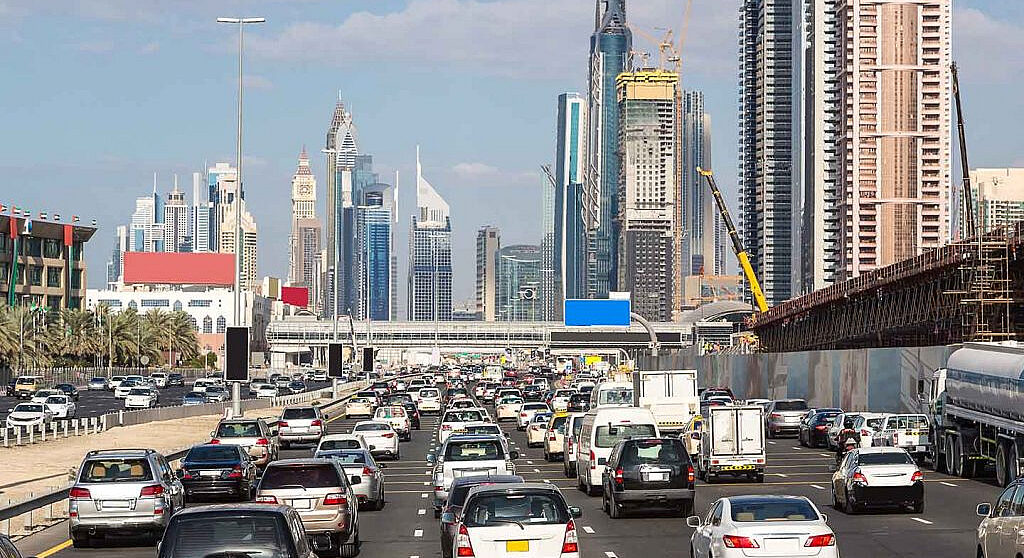How Traffic Laws in Dubai Differ from Other Countries
If you’re new to driving in the UAE, especially in Dubai, the traffic system may seem familiar at first glance, but it’s not. Dubai’s traffic regulations are known for their precision, strict enforcement, and zero-tolerance approach to violations. Whether it’s lane discipline, speed limits, pedestrian priority, or phone use while driving, the city runs on a no-nonsense system. Unlike many other countries, where police may issue warnings or let minor offences go, Dubai traffic laws are enforced digitally with minimal room for excuses.
For residents, tourists, and expats alike, understanding the driving rules in Dubai, UAE, is not just about avoiding fines; it’s about staying safe and complying with a system that prioritizes road discipline. With the rise of AI-powered cameras, black point systems, and automated fine processing, even a slight mistake can cost hundreds of dirhams.
In this blog, we will guide you through how Dubai’s traffic laws differ from other countries, backed by real-world examples, law comparisons, and insights into why these rules exist.
Strict Speed Limits, Radar in Every Turn
In Dubai, speed limits aren’t just rules; they’re enforced with near-perfect precision. From the moment you enter city roads or highways like Sheikh Zayed Road, you’re monitored by smart radars that catch even the smallest speed violations. Unlike many countries where speed limits are somewhat flexible, Dubai’s traffic enforcement relies on AI-powered systems designed to detect and penalize infractions in real time.
The typical city road speed limit ranges between 60 km/h to 80 km/h, while highways allow 100–120 km/h. However, in most of the UAE, there’s a 20 km/h buffer zone, meaning you’re only fined when exceeding the posted limit by more than 20 km/h. For example, on a road marked 100 km/h, enforcement typically starts at 121 km/h. That said, Abu Dhabi eliminated this buffer in 2018, and Dubai may follow suit in the future.
These speed rules are especially strict in school zones, near pedestrian crossings, and in construction areas. Cameras don’t just catch over speeding, they monitor lane changes, tailgating, and seatbelt use too. Drivers coming from countries with relaxed enforcement are often caught off guard.
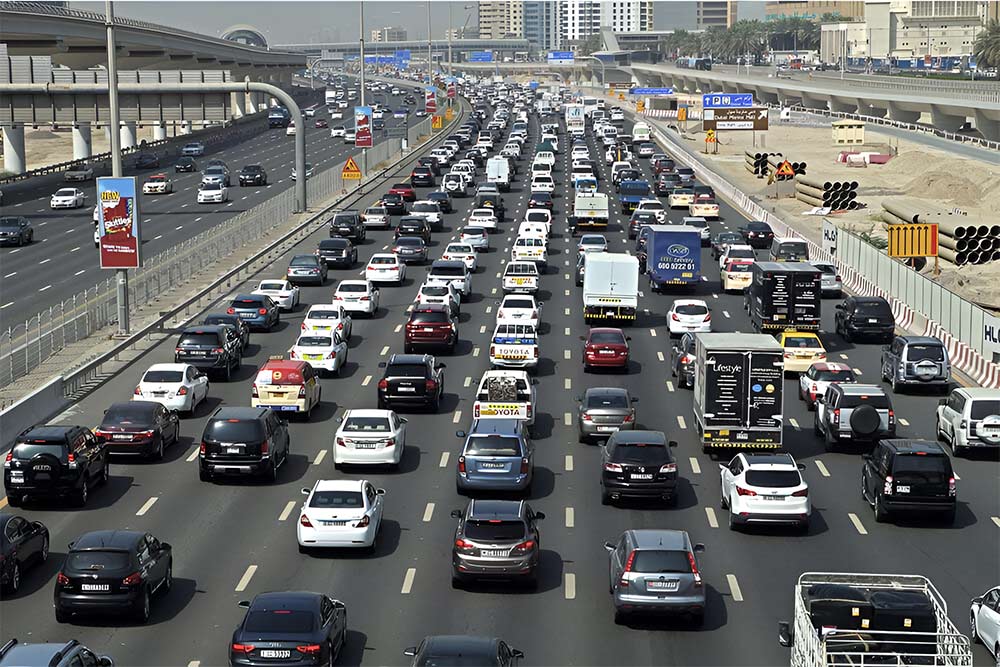
High-Tech Radar vs. US “Relaxed Enforcement”
In the United States, traffic enforcement varies significantly by state. While radar guns and patrol officers are common, the system still relies heavily on manual enforcement, and drivers often receive verbal warnings or lenient penalties for minor speeding. In contrast, Dubai traffic enforcement is largely automated and consistent. Every major road and intersection is covered by AI-based cameras that operate 24/7.
In Dubai, there’s no officer discretion when it comes to speed—if the system flags you, the fine is processed automatically and sent via SMS. The city’s reliance on smart technology eliminates bias and increases compliance.
Penalty Scale – How Dubai Compares Globally
The fines in Dubai are among the strictest in the world. Exceeding the limit even slightly can result in black points, hefty fines, and even vehicle impoundment. Here’s how Dubai compares with other countries when it comes to over speeding penalties:
| Exceeding Limit | Dubai Fine & Penalty | USA (Average) | UK | India |
| +30 km/h | AED 600 + 6 black points | US$50–$200 | £100 fine + 3 penalty points | ₹1,000–₹4,000 |
| +60 km/h | AED 1,500 + 12 black points | US$200–$500 | Court summons, possible license points | ₹4,000 + possible license seizure |
| +80 km/h and above | AED 3,000 + 23 black points + car impounded | US$500+ + license suspension | Severe penalties, possible court case | ₹5,000 + risk of arrest |
As shown, Dubai’s system prioritizes road safety through deterrence. Even a single high-speed violation can cost thousands of dirhams and your driving privileges. For expats and tourists, understanding these differences can prevent unexpected legal trouble.
Knowing the traffic code number Dubai assigns to speeding violations is also essential if you need to dispute or pay fines online through the RTA or Dubai Police portal.
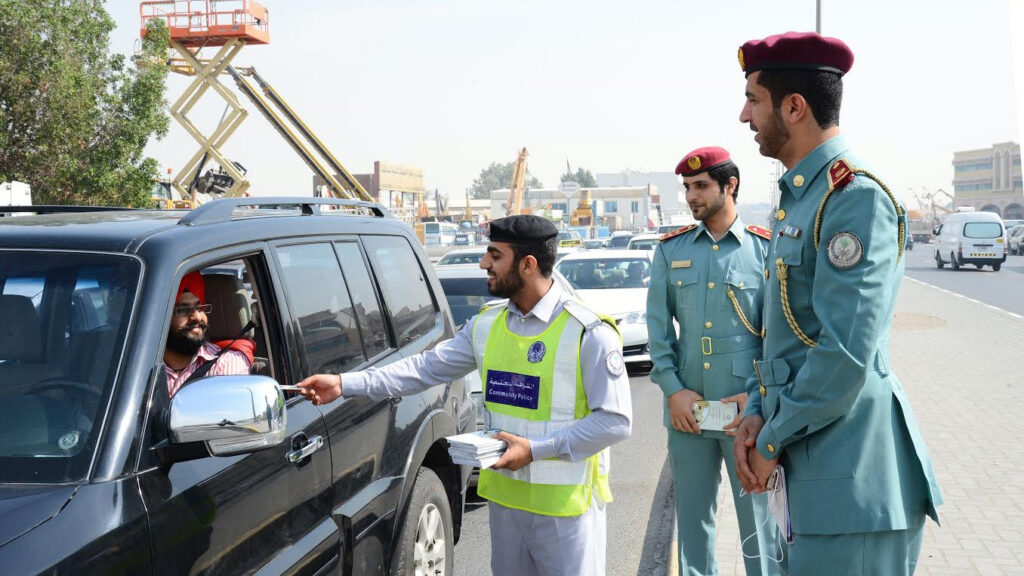
“Fast Lane” Culture & Legal Clarity in Dubai
In Dubai, the concept of lane discipline is enforced with a level of precision many expats aren’t used to. The left-most lane on multi-lane roads is strictly designated for overtaking only, not for cruising. Drivers are expected to shift back to the middle or right lanes after overtaking. Failing to do so can result in fines and black points under the UAE traffic code—a rule often overlooked by tourists or expats from countries with a more relaxed lane system.
Using the overtaking lane for regular driving, blocking faster vehicles, or overtaking from the right is considered a serious traffic violation. Many residents have reported being fined even when they didn’t realize they were violating lane discipline. The Roads and Transport Authority (RTA) and Dubai Police make this clear through ongoing campaigns and visible signage.
Global Comparison – How Dubai Differs
While the UAE follows a strict overtaking-only policy for the left lane, countries like the United States and India treat lane usage more casually. In many U.S. states, “keep right except to pass” is a guideline rather than a strictly enforced law. In India, chaotic traffic and road conditions often make consistent lane discipline impossible, and overtaking can happen from any side.
On the other hand, Germany has a system closer to Dubai’s. On the Autobahn, the left lane is strictly for passing, and violations can lead to penalties. But Dubai differs in its automation and real-time monitoring, making compliance not just expected but enforced without exception.
Enforcement Tools – AI Over Human Discretion
Dubai uses AI-powered traffic cameras and smart surveillance systems to monitor lane usage, tailgating, and sudden lane switching. These tools are programmed to recognize illegal overtaking or blocking behavior, unlike in other countries, where a traffic officer would need to witness the act in person.
Systems installed on major highways like Sheikh Zayed Road and Emirates Road log every vehicle movement, and violations are automatically processed. There’s no officer discretion, and appeals must go through the formal traffic dispute system. This level of surveillance is rare in most countries and is one of the key ways Dubai’s traffic laws differ from those abroad.
Whether you’re an expat or a tourist driving in the UAE, understanding this fast lane culture is essential to avoiding fines and staying safe.
Zero-Tolerance on Red Light & No-Entry Infractions
In Dubai, running a red light or entering a prohibited road is not taken lightly. The penalties are steep, immediate, and often come with vehicle impoundment. If you cross a red signal, you’ll face a fine of AED 1,000, 12 black points, and your vehicle can be impounded for 30 days. Similarly, violating a no-entry sign can cost you AED 1,000 and 4 black points. This zero-tolerance policy reflects the city’s commitment to road safety, and it’s rigorously enforced through automated surveillance.
These measures are not just about following the signs; they aim to reduce fatal accidents at intersections, which are often caused by reckless red-light runners. Dubai Police and the RTA have installed smart systems that automatically detect and record violations using AI and high-resolution cameras. Once caught, there’s no verbal warning or chance to explain; it goes straight to your traffic file.
How It Works Abroad
In many other countries, including the US, UK, and parts of Europe, running a red light or violating a no-entry zone may not always lead to immediate fines unless caught by a traffic officer or a red-light camera. In places like the United States, the penalty can vary by state, and the enforcement depends on local jurisdictions. Fines can range from USD 50 to over USD 500, and points may or may not be added to your driving record.
In the UK, red-light offenses are often handled through a notice of intended prosecution, and violators might be asked to attend a driver awareness course in place of fines, an option not available in the UAE.
Dubai’s AI-Driven Enforcement Model
What makes Dubai’s red-light enforcement unique is the integration of AI and real-time data systems. Cameras are connected to a centralized system that identifies the license plate, confirms the violation, and sends an alert to the driver’s Dubai Police app or RTA traffic file. No human intervention is needed. This efficiency means that even minor misjudgments—like entering a no-entry road for a few seconds—can result in a recorded offense.
Below is a comparison of how Dubai’s penalties differ from other countries:
| Violation Type | Dubai Penalty | US Average Penalty | UK Penalty |
| Running Red Light | AED 1,000 + 12 pts + 30-day impound | $50–$500 + 1–2 points | £100 + 3 points or course option |
| No-Entry Violation | AED 1,000 + 4 black points | $75–$200 depending on area | £60–£130, often without points |
Strict Pedestrian Enforcement in Dubai
In Dubai, crossing the road randomly outside designated zones can cost you more than just your safety. The jaywalking fine is AED 400, even if no accident occurs. If your action causes an accident or disrupts traffic, the consequences are far more severe. This strict stance aligns with Dubai’s broader road safety policies, which prioritize both pedestrian and driver discipline.
Unlike some countries where jaywalking is overlooked or considered minor, Dubai enforces pedestrian laws with real-time surveillance, traffic patrols, and smart cameras placed at busy intersections and high-risk areas. The goal is clear: reduce pedestrian deaths and ensure smoother traffic flow. Areas near metro stations, shopping malls, and major roads are especially monitored.
What’s unique is that even non-residents and tourists are held accountable. A fine notice is linked directly to their Emirates ID, or for visitors, to their visa records, making it difficult to ignore or delay payment.
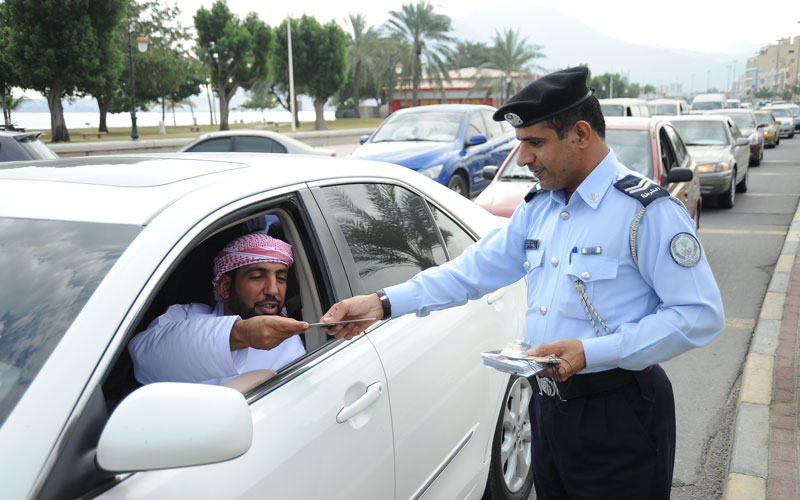
Global Jaywalking Standards – How Dubai Differs
In countries like the US, UK, and India, jaywalking enforcement is comparatively relaxed. For instance, in the UK, there’s no actual offense called “jaywalking”; adults are expected to judge when and where to cross safely. In America, enforcement varies by state, with some issuing fines as low as $25. India, on the other hand, often lacks consistent pedestrian laws altogether, and crosswalk violations are rarely penalized.
This contrast shows how Dubai’s pedestrian enforcement is far more stringent, with clearly marked zebra crossings, AI-based red light systems, and police presence at pedestrian hotspots.
Safety Infrastructure for Pedestrians in Dubai
The strict laws are balanced with heavy investment in pedestrian infrastructure. Dubai has built overhead bridges, underpasses, smart pedestrian crossings, and AI-powered alerts that trigger visual and audio cues when someone tries to cross during a red signal.
The Dubai Tram system even uses motion sensors that stop the tram if a pedestrian is detected in its path. Additionally, smart pedestrian signals now adapt to crowd size and walking speed, especially in high-footfall areas like Dubai Marina, Downtown, and Al Rigga.
Here’s a snapshot comparison of Dubai’s pedestrian law enforcement versus other countries:
| Country | Jaywalking Fine | Enforcement Level | Pedestrian Tech |
| Dubai | AED 400+ | High | AI cameras, smart crossings |
| UK | £0 (no legal fine) | Low | Zebra crossings only |
| USA | $25–$200 (varies) | Medium | Crosswalks, signals |
| India | ₹0–₹50 (rarely applied) | Very low | Basic signals, poor enforcement |
Heavy Penalties for Distracted Driving
Distracted driving in Dubai isn’t just frowned upon, it’s expensive and risky. The UAE Traffic Law penalizes using a mobile phone while driving with a fine of AED 800 and 4 black points. But it doesn’t stop at just texting. Even if you’re using hands-free mode or simply checking notifications while behind the wheel, you’re at risk. Dubai’s enforcement system goes beyond traditional patrols. AI-powered traffic cameras now catch drivers who glance at their screens, even behind tinted windows.
This approach reflects Dubai’s zero-tolerance stance on road distractions, where safety trumps convenience. Using a phone while driving is considered one of the top causes of accidents across the UAE. Authorities often conduct awareness campaigns, but strict enforcement remains the key deterrent. Whether it’s a quick scroll through WhatsApp or a glance at Google Maps, the risk isn’t worth it; you can get fined even without being pulled over.
Tech-Powered Surveillance
Dubai is rapidly replacing traditional policing with digital surveillance. Smart radars, AI detection systems, and motion-capture cameras have been deployed city-wide. These systems can detect not only phone usage but also whether the driver is wearing a seatbelt, if the car is in motion during a red light, and even driver fatigue signs based on head tilt and eye movement.
The Dubai Police smart patrol system is linked to real-time analytics, flagging violations within seconds. This level of automation is rare globally and sets a new benchmark in urban road safety. For example, AI cameras are positioned in high-risk zones like Sheikh Zayed Road, Downtown Dubai, and Al Khail Road, tracking thousands of vehicles daily with 96% accuracy. The tech is even advanced enough to detect distracted driving through dark-tinted glass, a feature being discussed on platforms like Reddit.
Comparing Enforcement Worldwide
In most countries, enforcement of distracted driving still depends heavily on human observation. In the US, UK, and parts of Europe, police officers typically spot drivers manually or through dash-mounted patrol cameras. Fines range from $100 to £200, with few systems using AI detection. In India, enforcement varies by state, and violations are often overlooked unless a traffic stop occurs.
What makes Dubai’s model unique is its proactive enforcement using real-time tech. The reliance on human judgment is minimal. Offenders receive SMS alerts and fines directly linked to their Emirates ID or license plate, with no room for dispute. This not only reduces accidents but also instills a culture of responsibility on the road.
| Feature | Dubai | UK & Europe | USA | India |
| Mobile Use Fine | AED 800 + 4 pts | £200 (UK) | $100–$200 (varies) | ₹1,000–₹5,000 (varies) |
| AI Camera Surveillance | Yes (city-wide) | Limited | Few cities only | Minimal |
| Detection Through Tinted Glass | Yes | No | No | No |
| Real-Time Notification | Yes (via SMS/portal) | No | Rare | No |
Dubai’s digital-first traffic enforcement system doesn’t just penalize bad driving; it redefines how modern cities can manage urban mobility.
Drunk Driving & Zero-Tolerance
When it comes to drunk driving in Dubai, there’s absolutely no room for leniency. The UAE follows a zero-tolerance policy; even trace amounts of alcohol in a driver’s system can lead to immediate arrest, a mandatory court appearance, and stiff penalties. The standard fine for first-time offenders is AED 20,000, and that’s often accompanied by license suspension, black points, or vehicle confiscation. In more serious or repeat cases, jail time is also imposed, and deportation is possible for expats.
What sets Dubai traffic laws apart is the strictness of enforcement. There’s no legal blood alcohol limit. The act of driving under the influence itself, regardless of level, is treated as a criminal offense. Breathalyzer tests and routine checkpoints are common, especially near nightlife hubs and during holidays. Additionally, if you cause an accident while driving under the influence, insurance will not cover any damages, leaving you fully liable.
Global Differences in DUI Laws
In contrast, countries like the US, UK, and Australia allow small permissible levels of alcohol while driving. For example, in the UK, the legal blood alcohol limit is 80mg per 100ml of blood; in the US, it’s 0.08% in most states. Penalties typically begin with fines and license points, only escalating with repeat offenses or high blood alcohol content (BAC). In countries like France or Germany, enforcement is tighter but still allows a measurable BAC limit.
Some South Asian countries, while having DUI laws on paper, struggle with enforcement. Random breath tests are rare, and penalties may vary widely across regions. The contrast with Dubai’s immediate and uniform application of DUI penalties shows how seriously the UAE treats public safety.
Repeat Offender Penalties
Dubai’s zero-tolerance stance remains consistent, even repeat offenders aren’t given incremental penalties. A second or third offense can lead to license cancellation, longer jail terms, and vehicle impoundment for up to 60 days. Other countries tend to follow a graduated penalty model, where first-time offenders may face education programs or community service, while repeat offenders escalate through the system.
| Country | Legal BAC Limit | Fine (First Offense) | Jail Time Possible | License Impact |
| UAE (Dubai) | 0.0% | AED 20,000+ | Yes | Suspension or cancellation |
| USA | 0.08% | $500–$2,000 | Yes (varies) | Points, suspension |
| UK | 0.08% | £500–£5,000 | Yes (if high BAC) | Suspension |
| India | 0.03% | ₹2,000–₹10,000 | Rare | Suspension (in some states) |
Dubai’s message is clear: drink and drive, and you will face serious consequences—no exceptions. This policy plays a critical role in keeping UAE roads among the safest in the region.
Dubai’s Unique “Clean Car” Rule
When driving in Dubai, it’s not just how you drive but how your vehicle looks that can result in a fine. The Dubai Municipality, in coordination with the RTA, enforces a specific law under which vehicles that appear excessively dirty, especially those covered in sand, dust, or grime, can attract fines of up to AED 500. This “clean car” policy is part of broader efforts to maintain Dubai’s image as a modern, organized, and visually clean city.
Vehicles parked for long periods, particularly in open lots or sandy areas, are more likely to get flagged. Authorities may issue a warning sticker, giving the owner a grace period (usually 48 hours) to clean the vehicle. If ignored, the vehicle may be towed or fined immediately.
This law applies to both private and commercial vehicles, and especially rental cars. Many tourists and expats are unaware of this regulation until they are issued a fine.
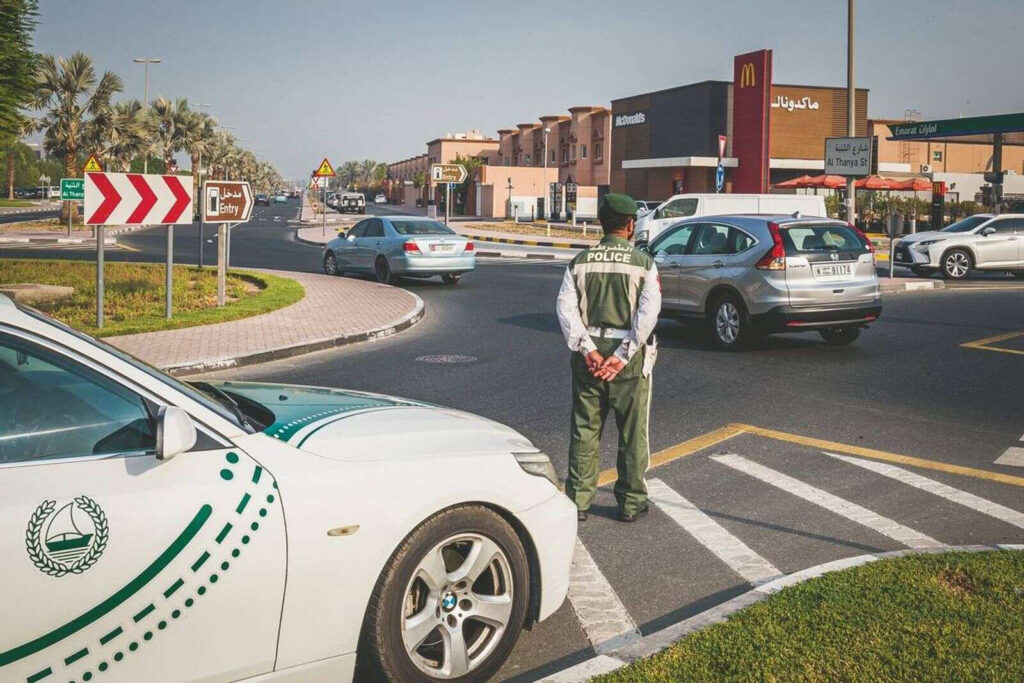
A Rule Rarely Seen Elsewhere
What makes this law unique is its absence in most Western or Asian traffic systems. In countries like the US, Canada, Germany, or Australia, there are no legal penalties for a dirty car, unless the condition of the vehicle obstructs visibility (such as a dirt-covered license plate or windshield). The focus in those jurisdictions is primarily on roadworthiness and safety, not appearance.
Dubai’s rule showcases how public order and cleanliness are integrated into traffic governance. The emirate blends urban planning, civic responsibility, and road laws into a cohesive system. This differs significantly from other global cities, where car cleanliness is considered a personal matter, not a legal one.
Black Point System & Immediate Impoundment in Dubai
Dubai enforces a strict black point system to maintain road discipline and reduce high-risk driving behaviors. Under this rule, every traffic violation is assigned a specific number of black points, depending on its severity. Once a driver accumulates 24 black points, their driving license is suspended for a period ranging from 3 months to 1 year, based on whether it’s a first-time or repeat offense.
More serious violations, such as reckless driving, driving under the influence, or causing death or major injury, can lead to immediate vehicle impoundment. The police may seize your car on the spot, and fines often exceed AED 50,000 to retrieve impounded vehicles, especially for repeat offenders. This measure not only targets private motorists but also extends to rental car users and commercial drivers, making road safety a shared responsibility.
The black point record is linked to your Emirates ID, ensuring every infraction is tracked across all Emirates. Traffic authorities, including Dubai Police and RTA, have access to the same database, reflecting a nationwide system for traffic enforcement.
International Comparison – How Does Dubai Differ?
In countries like the UK and the US, demerit point systems exist, but the enforcement tends to be more lenient. For instance, in the UK, accumulating 12 points over three years can lead to license disqualification, but there’s usually room for appeal. Vehicle confiscation is extremely rare and typically occurs only in cases involving stolen vehicles or unregistered cars.
In contrast, Dubai’s system is far more aggressive and centralized. Traffic code violations are not just penalized with fines but also recorded instantly with black points, and enforcement is swift. The result is a culture of high compliance with road safety rules, but it can be overwhelming for new expats or tourists who are unfamiliar with the local regulations.
Unified Fine System Across the UAE
Since 2024, the UAE has rolled out a harmonized fine system across all seven Emirates, including Dubai, Sharjah, Abu Dhabi, and Ajman. This means that whether you commit a violation in Ras Al Khaimah or Fujairah, the penalty amount, black points, and impoundment terms remain consistent.
This update makes fine payment, black point tracking, and license monitoring more transparent and accessible through digital portals like the Ministry of Interior (MOI), RTA, and Dubai Police apps. Drivers can now easily check their violation status and understand the severity of penalties without confusion over regional discrepancies.
By unifying enforcement, the UAE is creating a seamless, standardized traffic system that prioritizes safety, efficiency, and accountability.
Practical Tips for Drivers in Dubai
Driving in Dubai can feel overwhelming at first, especially if you’re coming from a country with more relaxed rules. But once you understand how the system works, it’s easy to stay safe and avoid costly mistakes.
Here are practical, no-judgment tips to help you drive smart and responsibly in the UAE.
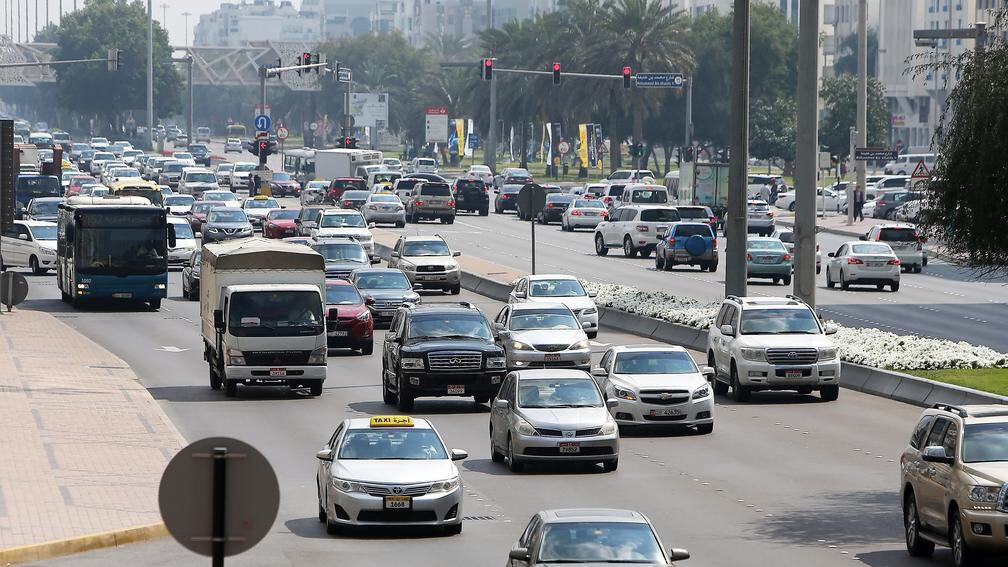
Use Official Apps for Real-Time Updates
Always download and use the RTA Dubai app and the Dubai Police app. These tools help you track traffic fines, check speed limits, report road incidents, and even renew your vehicle registration. They send alerts if you enter a Salik toll zone, break a rule, or accumulate black points, keeping you informed and protected on the road.
Stick to Lane Discipline and Speed Limits
Lane discipline is strictly enforced. Sudden lane changes without indicators can lead to black points and fines. Also, Dubai’s roads have smart radars that detect even slight speeding. Always follow posted speed limits and keep a safe distance from other cars, especially on highways like Sheikh Zayed Road.
Avoid Distractions and Prioritize Safety
Using a mobile phone while driving is a serious offense, even for checking maps. Keep your hands free, and don’t let distractions like food, loud music, or texting compromise your focus. Always wear seat belts, even in the backseat; it’s not just the law, it’s life-saving.
Keep Your Vehicle in Good Condition
Make sure your car is clean, insured, and regularly serviced. A dirty car can lead to fines in Dubai. If you’re renting a vehicle, double-check that the Mulkiya (vehicle registration card) and insurance are valid. For expats, this is often overlooked but frequently penalized.
Respect Pedestrian Zones and Parking Rules
Jaywalking and improper parking are both punishable. Never stop in no-parking zones, and always check for signage in paid parking areas. The RTA’s seasonal and daily parking permits make it easier to manage long-term parking.
By combining global driving habits with Dubai’s local traffic rules, you’ll not only avoid fines but also contribute to safer roads. Whether you’re a resident or visitor, adopting these simple habits will help you drive confidently across the UAE.
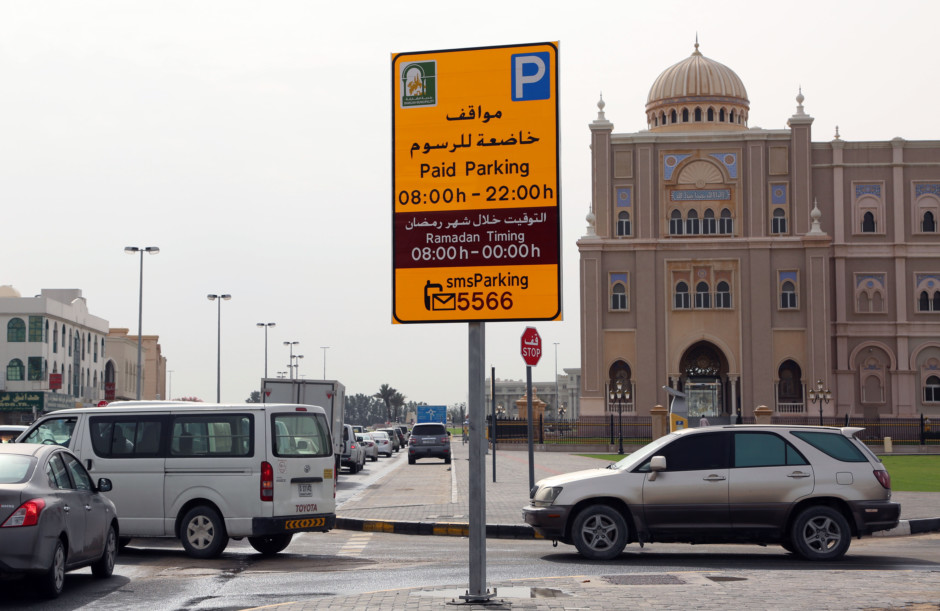
Conclusion: Drive Smarter by Understanding Dubai’s Unique Traffic Laws
Driving in Dubai is more than just following the road; it’s about understanding a culture of safety, discipline, and digital enforcement. From automated fines and black point systems to strict speed limits and real-time app monitoring, Dubai’s traffic laws are designed to maintain order on its fast-paced roads. If you’re used to a more relaxed system abroad, adapting may take a little time, but the benefits are clear: safer roads, fewer accidents, and a streamlined driving experience.
The key takeaway? Respect the rules, stay updated through official platforms like RTA Dubai and Dubai Police, and drive with care. Whether you’re a tourist, expat, or long-term resident, knowing how traffic laws in Dubai differ from other countries helps you avoid penalties and gives you confidence every time you’re behind the wheel.
Looking to rent a car in Dubai that’s fully compliant and ready to drive? Explore luxury and economy car rentals at Drive UAE – where convenience, verified listings, and customer support make every ride stress-free.

